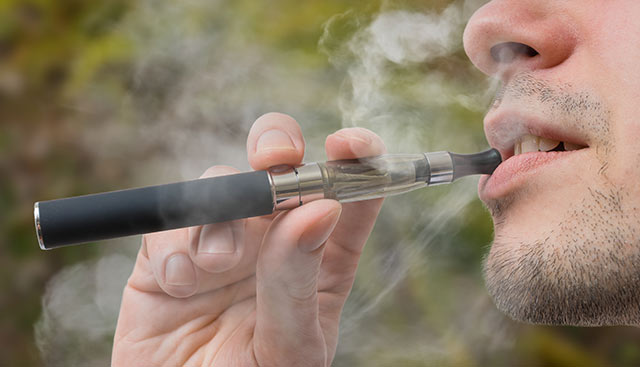
Does Vaping Cause Lung Cancer?
Vaping is a relatively new phenomenon that’s only been on the scene for about a decade. While the long-term effects of vaping are still being studied, research indicates that vaping does not directly cause lung cancer. However, for individuals who have never smoked before and aren’t planning to, vaping can increase their risk of lung cancer since most vaping liquid contains nicotine and toxic chemicals.
What is vaping?
Also known as an e-cigarette, a vape is a long, thin instrument that looks like a cigarette, cigar, pen or USB flash drive that heats up nicotine, special flavoring and other chemicals and turns them into a "vapor" that the user breathes in. While this vapor doesn’t contain tobacco, it can contain nicotine, which is derived from tobacco. The special flavors in vaping liquid may also contain chemicals that are toxic to certain cells in the body, especially lung cells. However, it’s important to note that these chemicals are in significantly lower amounts than typical cigarettes.
What are the risks associated with vaping?
Vaping causes fewer health risks than smoking, but it’s not a risk-free activity. Vaping can increase one’s heart rate, decrease air volume in the lungs and increase airway resistance—and those are just the short-term effects. Long term, aside from an increased risk of lung cancer for users who have never smoked before, vaping can cause individuals to become addicted to nicotine and exposed to toxic chemicals. Studies have even shown that young people who start vaping have a greater likelihood of smoking cigarettes in the future.
If you have questions about vaping and its link to lung cancer, the specialists at Moffitt Cancer Center are here to help. Simply give us a call at 1-888-663-3488 or fill out a new patient registration form online.
